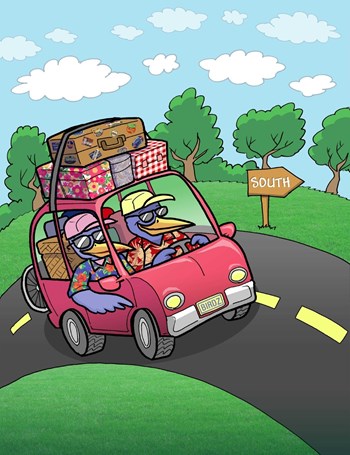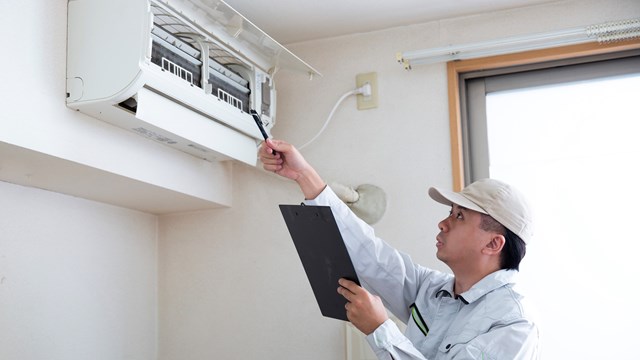
Every year the cycle repeats itself in co-ops and condo communities in New York City: as temperatures drop and snow begins to swirl, flocks of empty nesters and others fortunate enough to own a second home in a warmer climate pack up and head south.
Having these part-time residents’ units empty for months at a time poses certain challenges for the managers and boards of associations, whose administrative and managerial jobs don’t ease up just on account of the season. Security, emergency access to units, voting issues and communication all become pretty complicated.
The carefree lifestyle of condominium residents may make an owner feel as though taking off for a winter in Florida is as simple as removing the trash and locking the unit doors. Managers and other real estate industry pros know it’s not that simple.
Gaining Access
A 2004 University of Florida survey found that New Yorkers account for 13.1 percent of the sunshine state’s temporary residents. Most of these temporary residents migrated to counties in the southern part of the Sunshine State. And that means there are a lot of empty co-op and condo units.
It is unclear exactly when northern visitors to the Sunshine State became known as “Snowbirds,” but Canadian singer Anne Murray made the term famous in 1970 with the release of her song bearing the same name. The term is applied most commonly to the seasonal northern visitors who visit Florida annually generally during the period from November through April. National elections, early or late snowfalls and holidays can and do affect the annual exodus in both directions. Full time residents who leave Florida for several weeks during the hottest summer months are often referred to as “Sunbirds.”
No matter what term is applied to residents, this annual migration can present challenges for condos, HOAs and the property management firms that work on a personal level with this segment of Florida’s population. After all, administrative and managerial duties remain constant regardless of the season. Security, emergency access to units, voting and ongoing communications can get complicated when residents are miles away for months at a time. Well-run buildings and associations have systems in place to manage the myriad of concerns with proactive operating strategies tested and in place, all year long.
“Snowbirds should notify their co-op or condo board because their bylaws may have certain requirements they have to meet before they leave,” says Lorna Gucciardi-Potter, vice president of the commercial lines department at DeWitt Stern Group Inc., an insurance broker specializing in real estate. “There could be requirements that they need to meet before they leave the unit vacant. I’m sure they want to know if they have someone reputable watching the unit or what kind of security they have or if they have some sort of alarm system in place.”
“Most of the buildings that I manage don’t have hard and fast rules but they have to leave access,” says Jeff Heidings, president of Siren Management in New York City. “The superintendent or management company has to have keys to the unit in case there are any issues. The essence then is that it’s all about access in case of a disaster like a pipe bursting in that unit or in a nearby unit or if a water tank is cleaned you want to make sure nobody is running any water. It’s just a matter of access.”
Stephen P. Wald, principal of Stephen P. Wald Real Estate Associates Inc. in New York City agrees with Heidings about the importance of access to units while snowbirds are wintering in a warmer climate. “There’s always the occasional accident with a disaster or flood which is probably one of the most prevalent issues for part-time residents,” he says. “As long as there is access to the unit for emergency shut-offs it should be okay. So the number one issue is access to your unit with the building staff. You have to be reachable in case of an emergency.”
In addition, short term leasing, and maintenance are also issues seasonal buildings face frequently. Out-of-state or out-of-country property owners sometimes send in payments and fees late. If an owner fails to pay at all it may be difficult to pursue legal action across state or country borders.
“It’s important for seasonal residents that their monthly charges are paid on time,” says Wald. “They are often late and that’s why many buildings do not permit pied-a-terre use.”
“Most of the seasonal residents I have will have their mail forwarded,” adds Heidings. “They don’t want to have it accumulate.”
Many times a seasonal owner will allow his or her unit to be rented monthly, weekly, or even daily and without association approval. Usually this is in violation of the condo documents and bothersome to other residents. Transient guests often fail to respect the property and/or the rules which can result in security concerns.
Let’s say, says Heidings, that somebody shows up saying ‘I have the keys, I’m going to be staying here for a bit.’ “When the owner is away for an extended period of time they must realize that their guests have to be covered by the co-op or condo rules,” he says. “All of that has to be arranged in advance or at the very least they’d have to call or write me from wherever they are wintering and tell me that someone is going to be in their unit. If someone says I’m not going to be living here for November, December, January and February but my niece is going to be in New York and I want her to stay in my apartment that has to be arranged in advance.”
If the absentee or seasonal owner fails to maintain things like pest control, leaks, and air conditioning, mold, mildew and vermin can quickly wreak havoc for maintenance personnel and affect property values.
Trouble in Paradise
The best way to avoid problematic security and maintenance issues is to have owners provide out-of-state or out-of-country contact information as the official record with the association. Then all notices and official communications can and should be sent directly to the owners, keeping them fully informed.
“The biggest risks for leaving a condo or co-op vacant for a few months are vandalism and water damage,” says Potter. “Those are the two perils that we, as insurance brokers are concerned about. For most co-ops and condos, if the dwelling is vacant for more than 30 days there is no coverage, there is an exclusion on the policy. So it’s very important that they speak to their broker about removing that exclusion or amending it for the time period that they are in a warmer climate.
“I’m sure there is a requirement that somebody has to keep an eye on the unit,” she says. “Usually with co-ops and condos, they specify the unit owner is responsible for anything from the studs in and then from the studs out. The common area is usually the building’s responsibility—so the homeowner and the building are both responsible for insurance-related issues. Depending on where the damage is, if it occurs in a common area, it could be the building’s responsibility. And if it occurs in a unit they could determine you’re at fault and vice-versa.”
Voting
Having the correct, updated contact information is also necessary for proxies, and important votes.
“I have a snowbird on the board of one of the buildings that I manage so they just don’t attend board meetings for four or five months, they are absent,” says Heidings. “But if you had more than one on the board it could become an issue because you don’t want to have a chunk of your board not showing up for winter meetings.”
Another option is for out of town board members to participate in meetings via speaker phone as long as they can hear and be heard by all in attendance.
Real estate experts also believe that a user friendly website that is informative and up-to-date provides useful information. It can be a means of keeping informed about the community while at home or away and is an excellent way for all residents to stay current. Owners, renters, visitors, investors and other interested parties are all welcome on the site, but certain aspects of owner information should be password-protected for security and privacy.
It is extremely important for property owners to ensure their units are secured while they are away. Arrangements to inspect a unit before and after a weather event should be made with the board, management, or a private company.
Real estate experts advise boards to stay organized and follow the law and that co-op and condo owners stay in regular contact with their management companies.
Anne Childers is a freelance writer and a frequent contributor to The Cooperator. Staff writer Christy Smith-Sloman contributed to this article.






2 Comments
Leave a Comment